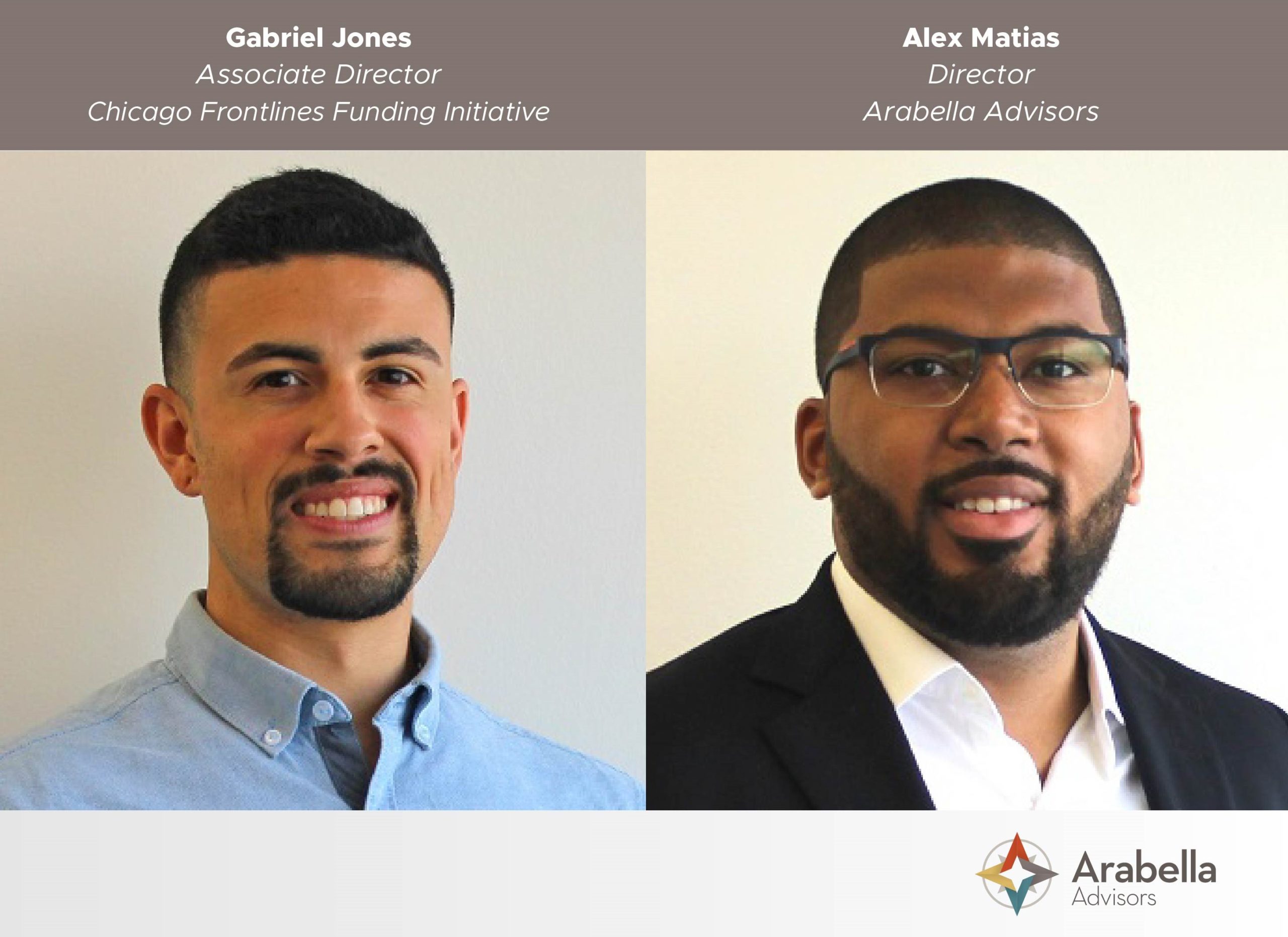Gabriel Jones and Chicago Frontlines Funding Initiative

In the first episode of season two of the “From Idea to Impact” podcast, Arabella Director Alex Matias spoke to former Arabellan and friend, Gabriel Jones. Their conversation covered environmental justice, power, philanthropy, and more. Here is some of what they shared:
- “I sort of entered the environmental justice world largely through research and academic perspective. I grew up outside of LA and learned about environmental justice through research that was going on through where my family had lived. This tipped me into research mode.”
- “When I think about environmental justice there are different ways to define it. The USEPA talk about it in two dimensions: fair distribution of environmental hazards in communities, so that they are not disproportionately placed in communities of color, in low-income communities, or on tribal nations or indigenous lands; and providing opportunities for meaningful participation of those same communities who are impacted in policy and planning processes to prevent those kinds of places from becoming a problem in the first place.”
- “A lot of environmental justice leaders think about it holistically. It is just as much about preventing pollution from being put in communities as putting more green spaces in communities to benefit them.”
- “When I think about the time when I learned about environmental justice as a field and saw what was going on to now, there has been a lot of momentum.”
- “How are we seeing these impacts in frontline communities and how are frontline communities going to be involved in distribution and dissemination of those resources. There is still some politics behind this in terms of who can access those dollars.”
- “When you talk about power and how philanthropy fits into that, there is a question of what does it look like to democratize the resource decision making process? How do we make sure that dollars that have been made on the backs of communities of color, are able to be led and directed by folks from those communities?”
- “As there is increased wealth generation and as the next generations of philanthropists are coming into their own, I could foresee intermediaries playing a particularly important role. […] It is important for intermediaries and partners to understand the ways that they are supporting folks and how the power structure of how this is set up could gate keep from those funds.”
- On his advice to donors: “There are two pieces. One is to get educated in environmental justice. Expand your horizon from what you would learn from those you know. Look into community organizations and frontline organizations. Second, power in philanthropy is a big deal. It is not about ‘how am I getting funding to people’, but ‘how is that funding allocated and how does that look?’ Re-examining your grantmaking practices is a critical piece to explore.”
To hear more from Gabriel about where funders can and already are leaning in, listen to the full conversation between he and Alex here.
